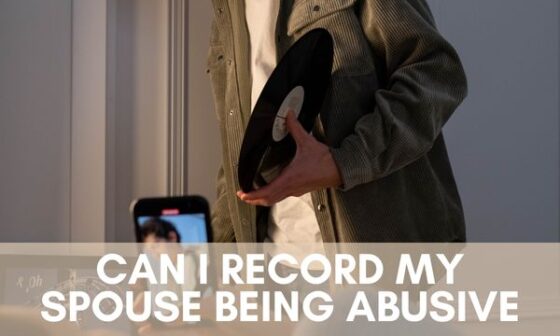The question of “am I responsible for my spouse’s debt in PA?” is usually asked by a Pennsylvanian, mainly if their spouse owes any debt. However, go through this article to see if you are responsible for your spouse’s debt in Pennsylvania.
Am I Responsible For My Spouse’s Debt In PA
Pennsylvania law defines marital assets as those that either spouse acquires during the marriage and before the separation date.
This holds for possessions acquired during the marriage, such as houses, cars, and financial holdings like stocks, bonds, and real estate.
A premarital asset’s value growth may also be considered marital property. Examples include the interest or dividends on a savings account or the increase in value of a house that was bought before the marriage.
People delay divorce for various reasons, one of which is their understandable fear that it may become complicated. A lot of sorting is done when a couple’s assets, kids, and obligations are considered.
People ask, “Am I responsible for my spouse’s debt in pa?” because they are terrified of cutting off their financial ties, some couples choose to stay in a miserable union. Money should never force somebody to remain in an unhappy marriage, yet it frequently does.
In Pennsylvania, your share of your spouse’s debt is determined by the initial debt agreement. You are accountable for your part of any joint debt that you and your deceased spouse incurred.
All debt accumulated throughout a marriage is referred to as “marital debt” if there is a shared debt. Since Pennsylvania is an equitable distribution state, you and your ex may be responsible for paying off any debts, including credit card balances, loans, and tax liabilities.
It’s a relief to know that even if you take your spouse’s last name, you don’t automatically inherit their debt or insufficient credit when you get married if you have a fiance with either of those issues.
Debts acquired before marriage are seen as belonging exclusively to the partner who brought them into the marriage, much like assets amassed before the wedding.
You must get in touch with the creditor and ask to have your name removed from the account if you do not want to be held liable for your ex’s debt.
Before the courts begin the distribution procedure, this has to take place. If the debt was incurred before the marriage or there is formal confirmation from the creditor that you were removed from the account, it could reduce your liability.
However, the courts usually see marital debt as shared regardless of whose name is on it or how it came about.
Consider a prenuptial agreement to shield yourself from any legal responsibility brought on by your spouse’s spending habits.
You can define how assets and debts will be handled throughout your marriage and distributed in the case of a divorce by signing a prenuptial agreement with your fiancé. It would be best to exercise caution regarding debt, mainly any you accrued after getting married.
Even if one spouse incurs debt solely in their name in a community property jurisdiction, the other spouse may be held partially liable for it in the event of a divorce, mainly if the debt arose from an advantage they both received (like a car or a home improvement).
Divorce and Marital Debt in Pennsylvania
Your spouse’s debt is not your responsibility if they have a credit card only in their name. Creditors do, however, have access to your spouse’s portion of any assets you may possess jointly with them. You will both be responsible if you have a shared credit card account.
Because Pennsylvania is an equitable distribution jurisdiction, divorce and others are distributed fairly rather than “equitably” or 50/50.
Married couples must share their marriage debts and marital assets when getting a divorce. Marital debt is accumulated during a marriage but before the couple divorces.
According to the provisions of a credit card agreement, a court may allocate debt to you through a divorce even though you were not initially responsible for it. For example, you are not a joint account holder and are not accountable under the terms of the card.
Even then, you would be required under the court’s order to repay the debt given to you. While the credit card company cannot hold you liable if you don’t pay off this debt, your spouse may still bring a lawsuit against you for disobeying the court order.
How To Approach Debt In Divorce In Pennsylvania
Reaching An Agreement
Reaching out is the best line of action for an understanding outside of court. As a result, you can manage your debts reasonably without the court’s help. For instance, both partners may be fully aware that a particular debt was committed by just one.
As a result, holding the other spouse accountable for this debt might be unfair. For instance, it’s possible that one partner borrowed money to go on vacation. Both partners can agree that the person who took the break should be responsible for paying the debt.
On the other hand, the other spouse would consent to pay back some additional debts. Allowing a judge to decide for you may end in a ruling that both of you find disappointing.

A Borrower May Not Respect The Court
It’s crucial to remember that a creditor might not abide by a court’s ruling. In other words, if both spouses are jointly named on the debt, they may initially try to collect it from both.
Even if a judge rules that only one couple is accountable for the obligation, the creditor may attempt to collect from both. The damaged spouse’s only option is to return to court for help.
Keep Records
Keeping track of every purchase you make and the debts that have been gathered could be helpful during the divorce process. If you have to provide evidence to the court, the lender may testify that you did not get the loan.
Am I Responsible For My Spouse’s Debt After Their Death?
In Pennsylvania, your share of your spouse’s debt is determined by the initial debt agreement. You are liable for your portion of any joint debt that you and your deceased spouse incurred.
If you agree to serve as a co-maker or guarantee for a transaction, you are also liable for a portion of your deceased spouse’s debt. In most cases, you are not required to pay any part of the debt if your spouse entered a credit agreement without your consent.
Pennsylvania’s equitable distribution rule determines who is responsible for your spouse’s financial dealings. It mandates that the court decide the fair allocation of marital assets and obligations.
This rule also applies to allocating assets after death, even though it occurs most frequently after divorce or annulments. A husband or wife is only accountable for their financial obligations under these rules. A spouse’s death does not make them automatically liable for debts they did not incur.

When Am I Responsible For My Spouse’s Debt?
1. If You Shared In The Borrowing
If you were a cosigner, the creditor or card company would still look to you for repayment after your spouse passes away. “If a credit card account is maintained jointly, both parties are typically equally liable for paying off the amount.
This implies that if you co-sign for a credit card or loan and the other account holder passes away, you could be responsible for the entire debt, even any charges you may not have made, according to debt expert Sean Fox, president of Freedom Debt Relief.
2. Divorce
Unless the parties agree otherwise, these guidelines for debt distribution apply in a divorce. It is conceivable for the parties to mutually agree to transfer responsibility for a duty that would have otherwise fallen on one of them to the other.
While neglecting to pay could result in a breach of contract claim by the other spouse and contempt proceedings with the court that oversaw the dissolution, it may not render that person contractually liable to the creditor or jeopardize their credit score.
Conclusion
The question at the beginning of this article has been answered. In some cases, you are not responsible for your spouse’s debt, especially in the case of accumulated debt before marriage, ignorance, debt after separation, etc. This article has also exposed the answers to what happens when your spouse, who owes money, dies.
In divorce cases, the rules for debt distribution apply unless the parties agree otherwise. The parties can jointly decide to assign one another responsibility for a duty that would typically fall to one of them, especially if the debt is a joint one.








